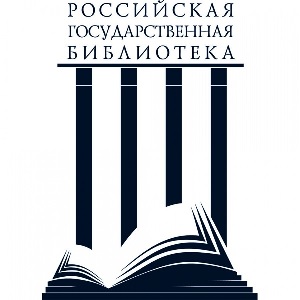ВЛИЯНИЕ COVID-19-ОГРАНИЧЕНИЙ НА БЮДЖЕТНО-НАЛОГОВУЮ ПОЛИТИКУ РФ
Аннотация
Глобальное распространение вирусной инфекции COVID-19 затронуло все сферы жизнедеятельности человека: экономическую, политическую, социальную, коммуникационную, культурную, в целом значительно изменило жизнь общества. Всё это отразилось на главном финансовом плане страны – её бюджете. В частности, из-за роста расходов на ликвидацию пандемии дефицит бюджета значительно увеличился. Общая структура бюджета по сравнению с предыдущим плановым бюджетом и плановым периодом три года существенно изменилась, возникла необходимость в коррекции намеченных планов относительно бюджетной политики с учетом сокращения бюджетных ресурсов. Исполнительные органы власти стараются в новых условиях сочетать урегулирование последствий кризиса, используя бюджетные механизмы, и финансирование структурных изменений в экономике.
Актуальность данной темы обусловлена резким сокращением бюджетных доходов и увеличением расходов по сравнению с 2019 г. Такое увеличение продиктовано необходимостью повышения финансирования расходов на здравоохранение для борьбы с пандемией, поддержку регионов, на социальную политику и национальную экономику. Целью настоящего исследования является изучение теоретических и практических аспектов влияния COVID-19-ограничений на бюджетную политику РФ в период 2020–2021 гг.
В рамках исследования были: представлена структура и динамика расходов государства; проведен обзор отзывов и мнений об эффективности мер вынужденной поддержки бизнеса; проведен анализ расходов государства, направленных на поддержку различных отраслей и населения; представлена оценка эффективности проведения бюджетной политики в условиях COVID-19-ограничений и их влияние на бюджетную систему РФ.
Объектом исследования является влияние COVID-19-ограничений на бюджетно-налоговую политику РФ, предметом – особенности финансовых отношений, возникающие по причине введения COVID-19-ограничений, влияющие на бюджетную систему РФ.
Литература
Federal Law N 166-FZ of 08.06.2020 "On Amendments to Certain Legislative Acts of the Russian Federation in order to take urgent measures aimed at ensuring sustainable economic development and preventing the consequences of the spread of a new coronavirus infection." CALR ConsultantPlus. (in Russian).
Federal Law N 209-FZ of 24.07.2007 "On the development of small and medium-sized businesses in the Russian Federation." CALR ConsultantPlus. (in Russian).
Decree of the President of the Russian Federation N 474 of 21.07.2020 "On the national development goals of the Russian Federation for the period up to 2030". CALR Garant. (in Russian).
Decree of the Government of the Russian Federation N 434 of 03.04.2020 "On approval of the list of sectors of the Russian economy most affected by the worsening situation as a result of the spread of a new coronavirus infection" (with amendments and additions). CALR Garant. (in Russian).
The budget for citizens to the Federal Law on the Federal Budget for 2020 and the planning period of 2021 and 2022. CALR ConsultantPlus. (in Russian).
Budget for citizens to the Federal Law on the Federal Budget for 2021 and for the planning period of 2022 and 2023. CALR ConsultantPlus. (in Russian).
Execution of the federal budget and the budgets of the budgetary system of the Russian Federation for 2020 (preliminary results). CALR ConsultantPlus. (in Russian).
Operational report on the execution of the federal budget and the budgets of state extra-budgetary funds January - December 2020. https://ach.gov.ru/. (in Russian).
Andreeva E.I., Bychkov D.G. Feoktistova O.A. COVID-19 and anti-crisis social support. Financial journal. 2021. T. 13. No. 1. P. 28-38. DOI: 10.31107 / 2075-1990-2021-1-28-38. (in Russian).
Vedev A.L., Drobyshevsky S.M., Knobel A.Yu., Sokolov I.A., Trunin P.V. Scenarios for the development of the economic situation in Russia in 2020-2021 and the challenges of economic policies. Economic development of Russia. 2020. Vol. 27. N 5. P. 4-23. (in Russian).
Zubarevich N.V. The impact of the pandemic on socio-economic development and regional budgets. Questions of theoretical economics. 2021. N 1 (10). P. 48-60. DOI: 10.24411/ 2587-7666-2021-10104. (in Russian).
Kosov M.E., Solovyova M.G. Implementation mechanisms and assessment of the effectiveness of budgetary policy in the context of the COVID-19 pandemic. University Bulletin. 2020. N 9. P. 128-137. DOI: 10.26425 / 1816-4277-2020-9-128-137. (in Russian).
Milchakov M.V. Implementation of regional development priorities in a pandemic. Financial journal. 2021. T. 13. N 2. P. 93-113. (in Russian).
A strong state is the choice of Russia. Threats, values, priorities: monograph. Ed. by I.M.Bratishchev. Moscow: "Dashkov and К°". 2021. 494 p. (in Russian).
Measures of the Government of the Russian Federation to combat coronavirus infection and support the economy. http://government.ru/support_measures/. (in Russian).
Gryzunova N.V., Pyatanova V.I., Shuvalova E.B. Financial mechanism for stimulating the development of the subjects of the southern region on the basis of credit cooperation. Regional economy. South of Russia. 2020. Vol. 8. N 1. P. 168-179. DOI: 10.15688/re.volsu.2020.1.15. (in Russian).
Voskanyan R.O. Solving the problem of a shortage of qualified personnel. Innovative development of the economy. 2021. N 4 (64). P. 63-68. DOI: 10.51832/2223-79842021463. (in Russian).
Zhdanova O.A. Principles of building a peer-to-peer lending ecosystem. Innovation and investment. 2021. N 2. P. 122-125. (in Russian).
Ermilova M.I. Using crowdfunding to improve the efficiency of the Russian housing market. Insurance business. 2020. N11 (332). P. 19-28. (in Russian).
Natocheeva N.N., Altukhova E.V. Assessment of the financial stability of business entities. In a collection of articles «Financial strategies and models of economic growth in Russia: problems and solutions». Moscow: "Auditor". 2017. P. 151-163. (in Russian).












